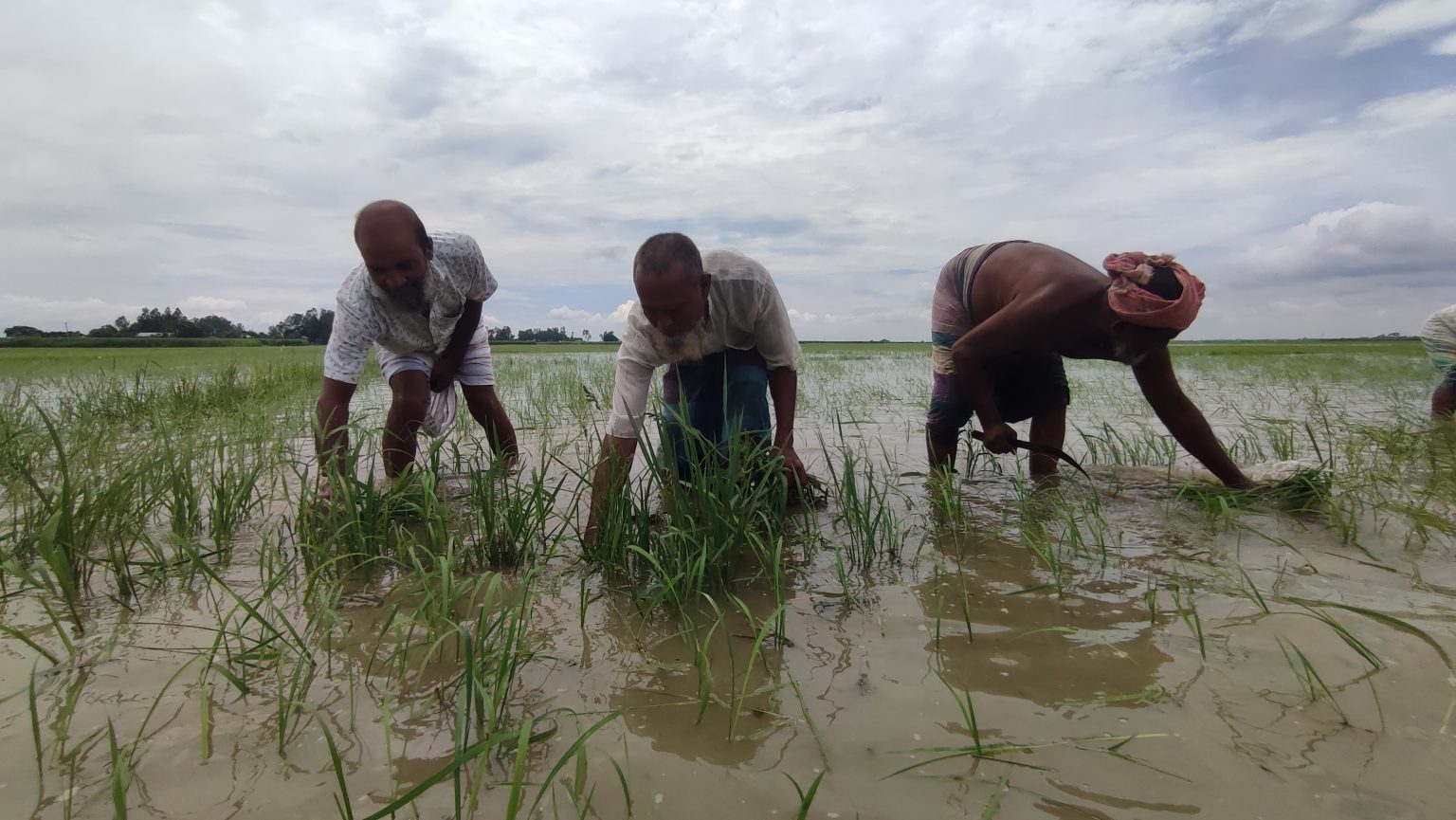Around 200 bighas of Aman paddy fields have gone under water in the Gajnar Beel area of Sujanagar upazila in Pabna after the sudden release of water from the Talimnagar sluice gate. The unexpected flooding has left local farmers devastated as they worry about recovering their losses.
Farmers have alleged that the upazila nirbahi officer (UNO) released the water without consulting them. However, UNO Mir Rasheduzzaman Rashed has said that the decision was made considering the needs of jute growers and fisheries in the beel area. He also assured that steps would be taken to compensate the affected farmers.
During a spot visit on Sunday afternoon, it was seen that large parts of Gajnar Beel, particularly around Badai village, had been filled with water, leaving most of the paddy plants submerged. Farmers looked on helplessly at the paddy they had planted with their own hands, now drowning under water.
Bakul Sheikh, a farmer from Badai village who cultivated Aman paddy on 10 bighas of land this year, said that paddy on 7 bighas of his land was submerged overnight. In a tearful voice, he told the Times of Bangladesh:
“If I get some compensation, I might be able to survive.”
Bakul is not alone — more than a hundred farmers are facing the same desperate situation.
Local farmers Riza Sheikh and Nader Sheikh alleged that the sluice gate at Talimnagar is under the control of the UNO, who released the water without consulting them, submerging their fields in a single night. They added that they had never experienced such a disaster before.
In response, Sujanagar UNO Mir Rasheduzzaman Rashed explained, “The decision to release water at the beginning of July was taken due to demands from jute farmers and to protect fish resources in the beel. The jute is ready for harvest but there was a water shortage, and juvenile fish (hatchlings) come into the beel with the tidal water.”
He further assured that measures would be taken to support the affected farmers.
Faruk Hossain Chowdhury, Sujanagar upazila agriculture officer, said:
“Farmers had requested that the water be released gradually, not all at once. But due to heavy pressure from jute growers in higher areas, the UNO had no choice. However, if water can be pumped out, most of the paddy fields might still be saved.”
This year, Aman paddy has been cultivated on 2,770 hectares of land in Sujanagar upazila, with a production target of 4,377 metric tonnes of rice.


